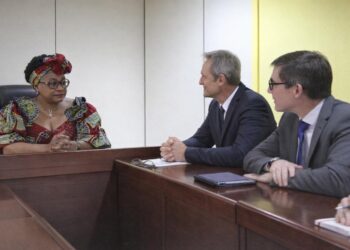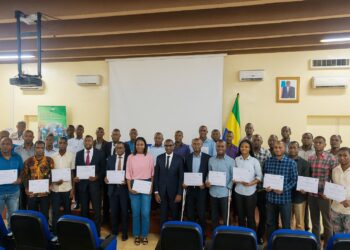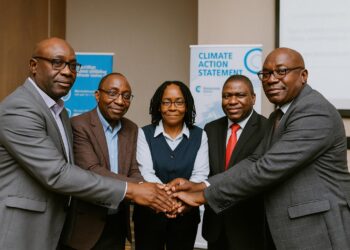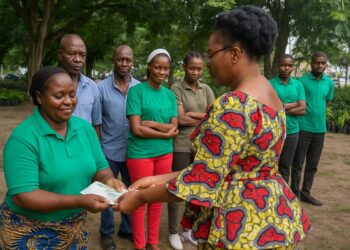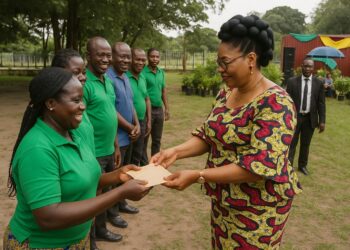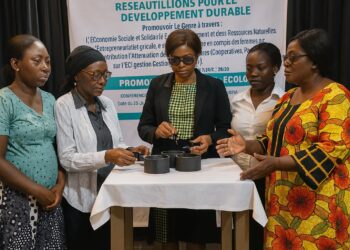Brazzaville sets the stage for climate-economy debate
The Congolese Institute for Climate Economics, known as ICEC, has confirmed that it will roll out a cycle of seminars devoted to the economic dimensions of climate change. The announcement, made in Brazzaville, strengthens the country’s ambition to translate environmental commitments into actionable fiscal and market signals (ICEC).
According to the Ministry of Environment, the initiative offers a neutral forum for students, researchers, policy makers and business leaders seeking a technical reading of carbon constraints and opportunities. Officials say the move complements the Republic of Congo’s updated nationally determined contribution under the Paris Agreement (Ministry of Environment, 2023).
A multidisciplinary curriculum, fourteen themes
ICEC’s scientific board has validated a syllabus that spans public economics, game theory, behavioural science and green finance. Fourteen topics will be treated, from carbon-pricing strategies and green budgeting to impact investing and artificial intelligence applied to ecosystem monitoring.
Session formats alternate between single-day intensives and multi-week modules, a structure designed to accommodate both professionals with limited time and doctoral candidates looking for deeper engagement. ICEC notes that preparatory reading packs will be circulated in English and French to maximise regional reach.
Global focus, Congo Basin lens
Lecturers will scrutinise emissions-reduction policies in the European Union, China and Sub-Saharan Africa, mapping lessons for Brazzaville’s own transition trajectory. Special attention will be paid to the Congo Basin, whose peatlands store an estimated thirty billion tonnes of carbon, roughly equivalent to three years of global energy-related emissions (UNFCCC data, 2022).
Experts from the African Development Bank and the Central African Forest Initiative are expected to discuss financing mechanisms that monetise avoided deforestation while protecting community livelihoods. The World Bank’s carbon-pricing dashboard will serve as a comparative tool to benchmark regional initiatives.
Institutional ambitions beyond 2025
Although the legal act establishing ICEC is dated October 2025, the institute is already operating in provisional premises on the Brazzaville Science Campus. Its interim director, Dr. Armand Mombouli, states that “early delivery of seminars allows stakeholders to test ideas before the official inauguration”.
ICEC’s charter envisions hosting doctoral and post-doctoral fellows, providing seed grants for field experiments in carbon accounting and organising an annual climate-economy barometer for Central Africa. Negotiations are underway with the Banque des États de l’Afrique Centrale to co-publish the index.
Aligning with national development priorities
Congo’s 2022–2026 National Development Plan earmarks three percent of GDP for green growth enablers, including sustainable forestry and renewable energy. ICEC’s seminars are pitched as a knowledge backbone for those targets, ensuring that public investment remains consistent with debt-sustainability frameworks (AfDB Green Growth Strategy, 2021).
The Ministry of Finance has also signalled interest in ICEC’s planned module on sovereign green bonds, noting that regional capital markets could mobilise up to 500 million dollars for climate-compatible infrastructure if supported by credible project pipelines.
Investor outlook and private-sector uptake
Early registration data, shared by ICEC, show that forty-one percent of applicants come from the private sector, notably timber, oil-and-gas services and fintech. Industry leaders view the seminars as a chance to anticipate regulatory shifts, such as potential carbon border adjustment mechanisms in trade partners’ markets.
Jean-Pierre Ibata, chief economist at Congo Bio-Energy, argues that “firms need rigorous cost-benefit models to decide between retrofitting assets and purchasing offsets”. By integrating behavioural economics, ICEC hopes to refine those models and encourage voluntary decarbonisation pathways.
Regional collaboration and soft power
Diplomats from Gabon, Cameroon and the Democratic Republic of Congo have expressed intent to send observers, underscoring Brazzaville’s role as a convening power in the basin. The seminars may feed into negotiating positions for the next UN climate conference, where Central African states aim to secure higher payments for ecosystem services.
Analysts suggest that academic leadership can translate into geopolitical leverage. “Evidence-based proposals carry more weight in climate finance negotiations,” notes Professor Linda Tamba of the University of Kinshasa. ICEC’s data repositories will thus complement diplomatic efforts led by the Congo Basin Climate Commission.
Next steps and expected deliverables
The inaugural session, slated for March, will dissect the evolution of the UN Framework Convention on Climate Change from Kyoto to Glasgow, mapping how multilateral rules influence domestic tax policy. A follow-up workshop on green budgeting will use Congo’s 2024 finance bill as a case study.
ICEC plans to publish a mid-year white paper summarising insights and policy recommendations. A dashboard tracking seminar impact—attendance, citations, policy uptake—will be updated quarterly to maintain accountability. Dr. Mombouli contends that transparent metrics will attract donor confidence and sustain the programme financially.
Outlook for Congo’s climate-economy ecosystem
Observers believe that, if executed well, the seminars could seed a generation of analysts capable of bridging technical climate data with fiscal decisions. This talent pool is deemed critical as Congo explores carbon-credit markets, renewable concessions and climate-resilient infrastructure.
While challenges remain—ranging from data gaps to global price volatility—the structured dialogue offered by ICEC is widely viewed as a constructive step. As Professor Tamba summarizes, “capacity precedes capital; by investing in knowledge, Brazzaville positions itself to secure future green financing on favourable terms”.


































